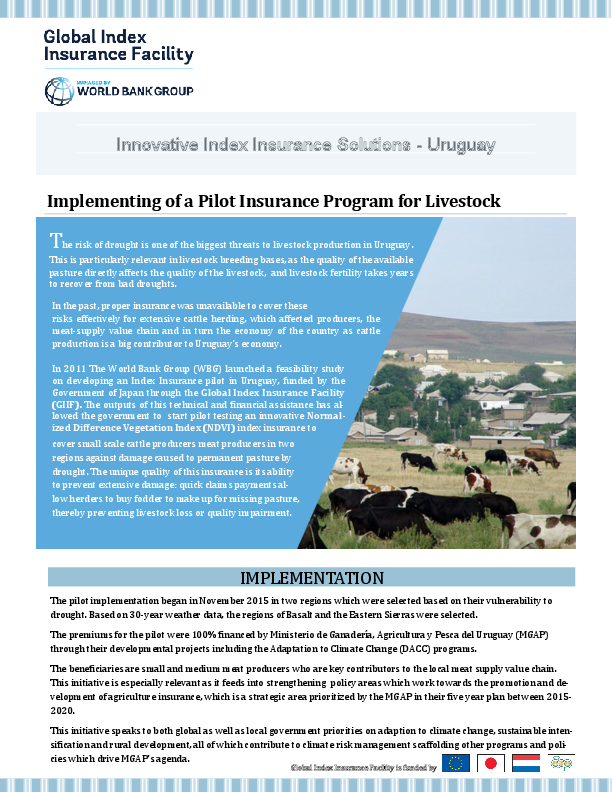Innovative Index Insurance Solutions – Uruguay

In 2011 The World Bank Group launched a feasibility study on developing an Index Insurance pilot in Uruguay, funded by the Government of Japan through the Global Index Insurance Facility. The study quantified the total number of reproductive livestock units as 3.8 million countrywide, with 315 million USD total sum insured. The corresponding number of livestock producers was estimated at 38,000. The outputs of this technical and financial assistance has allowed the Government of Uruguay to start pilot testing an innovative Normalized Difference Vegetation Index (NDVI) index insurance to cover small scale cattle producers meat producers in two regions against damage caused to permanent pasture by drought. The pilot phase is scheduled between 2015 and 2017, and the beneficiaries include small and medium meat producers who are part of a climate change resilience and adaptation project.
